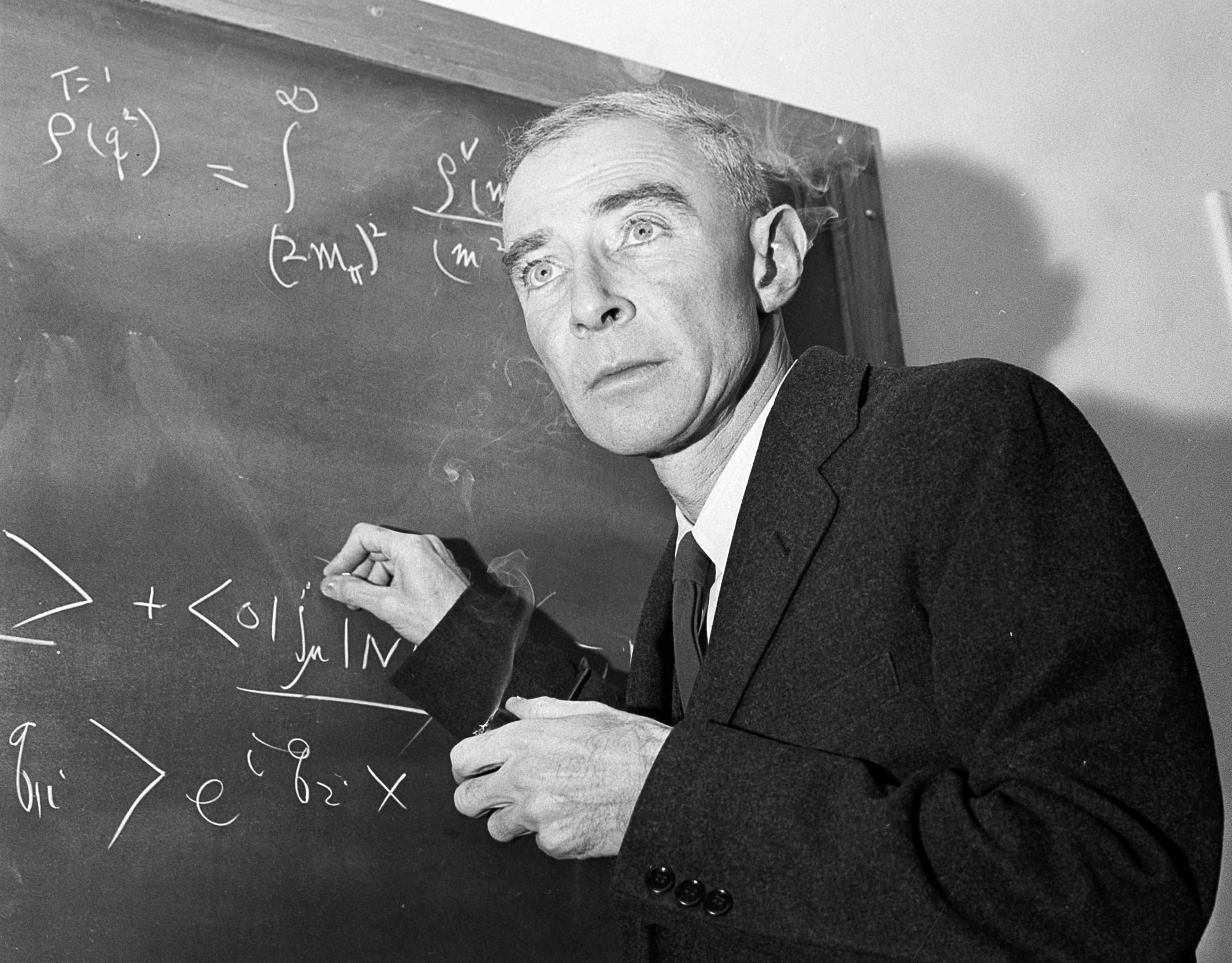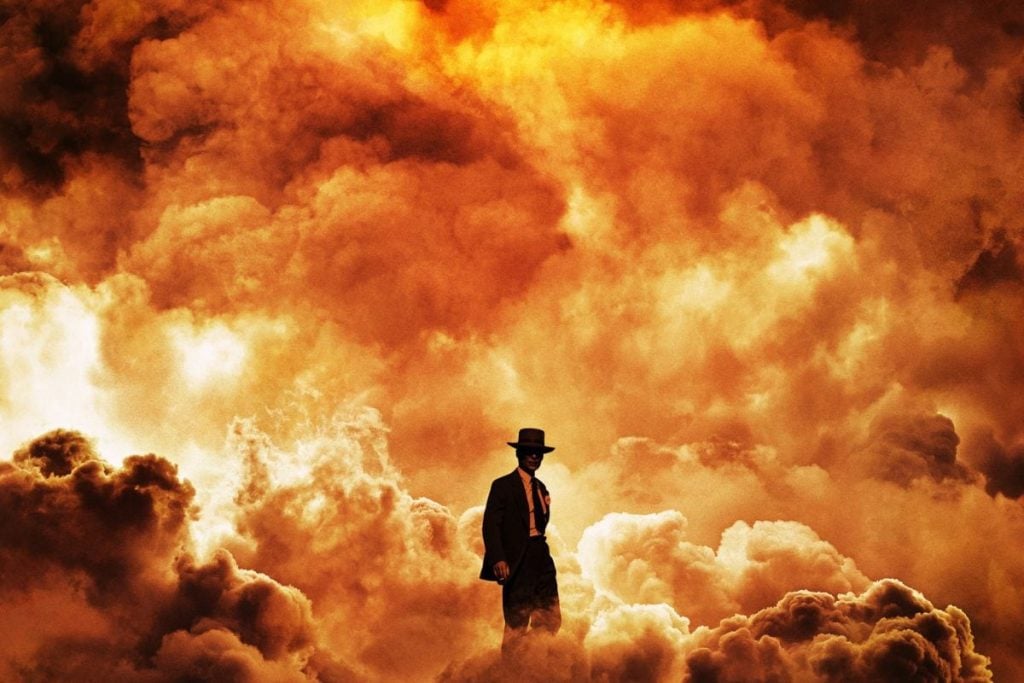The movie “Oppenheimer,” directed by Christopher Nolan, offers a riveting portrayal of the life and achievements of the brilliant physicist J. Robert Oppenheimer.
This cinematic masterpiece delves into the complex persona of a man who played a pivotal role in shaping world history during one of the most critical periods of the 20th century.

Aspiring candidates for the SSB Interview can expect questions related to Oppenheimer, his contributions, and his impact on science and society. Let’s explore the movie’s themes and come up with ten potential questions that may arise during the interview.
Read: 20 SSB Interview Questions For Freshers [With Sample Answers]
Plot Summary: “Oppenheimer” traces the life of J. Robert Oppenheimer, from his early days as a young, talented physicist to his instrumental role in the Manhattan Project. The movie highlights Oppenheimer’s involvement in developing the atomic bomb during World War II, leading to the detonation of the first nuclear weapon. Nolan’s film captures the ethical dilemmas faced by Oppenheimer and the ethical ramifications of his work, as the atomic bomb’s development and subsequent use changed the course of history forever.

SSB Questions Themes Explored
- Scientific Genius and Responsibility: How does the movie depict Oppenheimer’s scientific brilliance, and what responsibilities did he grapple with as he worked on the atomic bomb project?
- Ethical Dilemmas of the Manhattan Project: Discuss the moral dilemmas faced by Oppenheimer and other scientists involved in the Manhattan Project. How did they reconcile their scientific pursuits with the potential catastrophic consequences of their work?
- Human Cost of Scientific Advancements: In what ways does the film showcase the devastating impact of nuclear weapons on humanity and the world at large?
- Oppenheimer’s Leadership and Influence: How did Oppenheimer’s leadership skills contribute to the success of the Manhattan Project? How did he inspire and guide his team of scientists?
- Personal Life and Struggles: Explore the movie’s portrayal of Oppenheimer’s personal life, including his relationships, struggles, and challenges outside the scientific realm.
- Legacy and Historical Significance: In what ways did Oppenheimer’s work during World War II shape the course of history, and what is his lasting legacy in the scientific and political spheres?
- The Role of Scientists in Society: How does the movie emphasize the significant impact scientists can have on society, for better or worse, and the importance of responsible decision-making?
- Technological Advancements and Global Politics: Discuss how the development of nuclear weapons during the Manhattan Project influenced global politics and the arms race during the Cold War.
- International Cooperation in Scientific Endeavors: Highlight the international collaboration and cooperation among scientists from different countries during the Manhattan Project.
- Lessons for the Future: What lessons can be learned from Oppenheimer’s life and the development of nuclear weapons to ensure responsible use of scientific advancements in the future?
SSB Interview Questions on Oppenheimer
- When was the first atomic bomb invented? Answer: The first atomic bomb was invented in the early 1940s.
- Who made the first nuclear bomb and when? Answer: The first nuclear bomb was made by a team of scientists led by J. Robert Oppenheimer as a part of the Manhattan Project.
- What was the Manhattan Project? Answer: The Manhattan Project was a research and development project that produced the first atomic bombs during World War II. It was led by the United States with support from the United Kingdom and Canada.
- Did Oppenheimer follow Bhagavad Gita? Answer: Yes, J. Robert Oppenheimer, the director of the Manhattan Project, was known to have studied Hindu philosophy, including the Bhagavad Gita.
- What did Oppenheimer say about Bhagavad Gita? Answer: Oppenheimer famously quoted the Bhagavad Gita after witnessing the successful Trinity test, saying, “Now I am become Death, the destroyer of worlds.”
- What was the Cold War? Answer: The Cold War was a period of geopolitical tension and ideological rivalry between the Soviet Union and the United States and their respective allies from the end of World War II until the early 1990s. It was characterized by proxy wars, an arms race, and political and economic competition.
- Who used the atomic bomb first and where? Answer: The United States used the atomic bomb as a military weapon for the first time during World War II. The nuclear bombs were dropped on Hiroshima and Nagasaki in Japan.
- Who invented the atom bomb in India? Answer: India developed its atomic bomb under the guidance of Homi J. Bhabha, often referred to as the “father of the Indian nuclear program.”
- Who is known as the father of the atom bomb? Answer: J. Robert Oppenheimer is often called the “father of the atomic bomb” due to his leadership role in the development of the first atomic bombs during the Manhattan Project.
- Why did America bomb Hiroshima and Nagasaki? Answer: America bombed Hiroshima and Nagasaki during World War II for strategic and political reasons, primarily to bring about a swift end to the war with Japan. The bombings took place in August 1945, and they involved the use of atomic bombs, making them the first and only instances of nuclear weapons being used in warfare.
Read: 50+ Personal Life Questions Asked In SSB Interview
As candidates prepare for the SSB Interview, understanding the themes and historical context of the film can help them answer potential questions thoughtfully and demonstrate their critical thinking and ethical awareness as future leaders.
The life of Oppenheimer serves as a reminder of the tremendous impact scientific advancements can have on humanity, emphasizing the need for responsible decision-making and global cooperation in tackling the challenges of the modern world.














